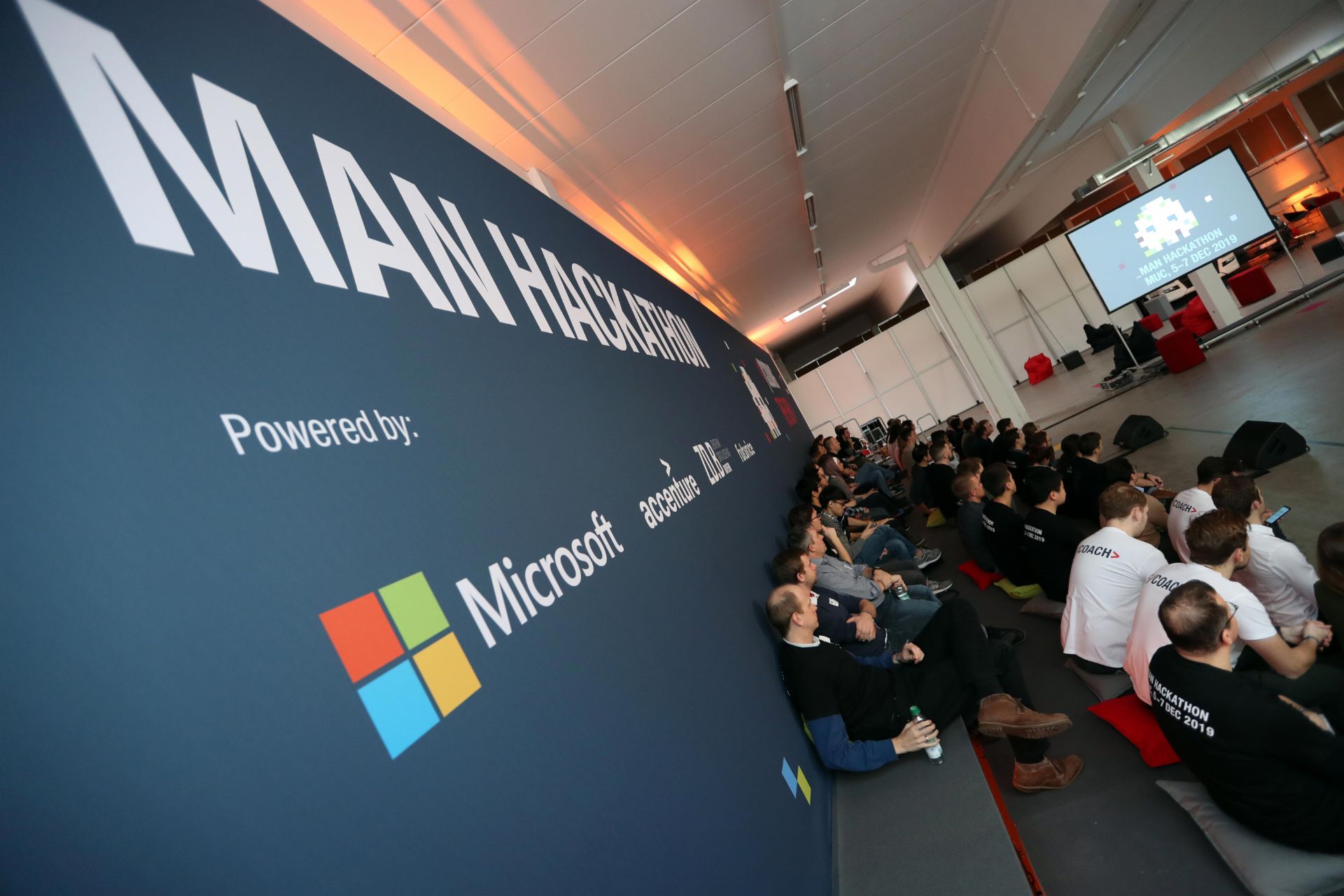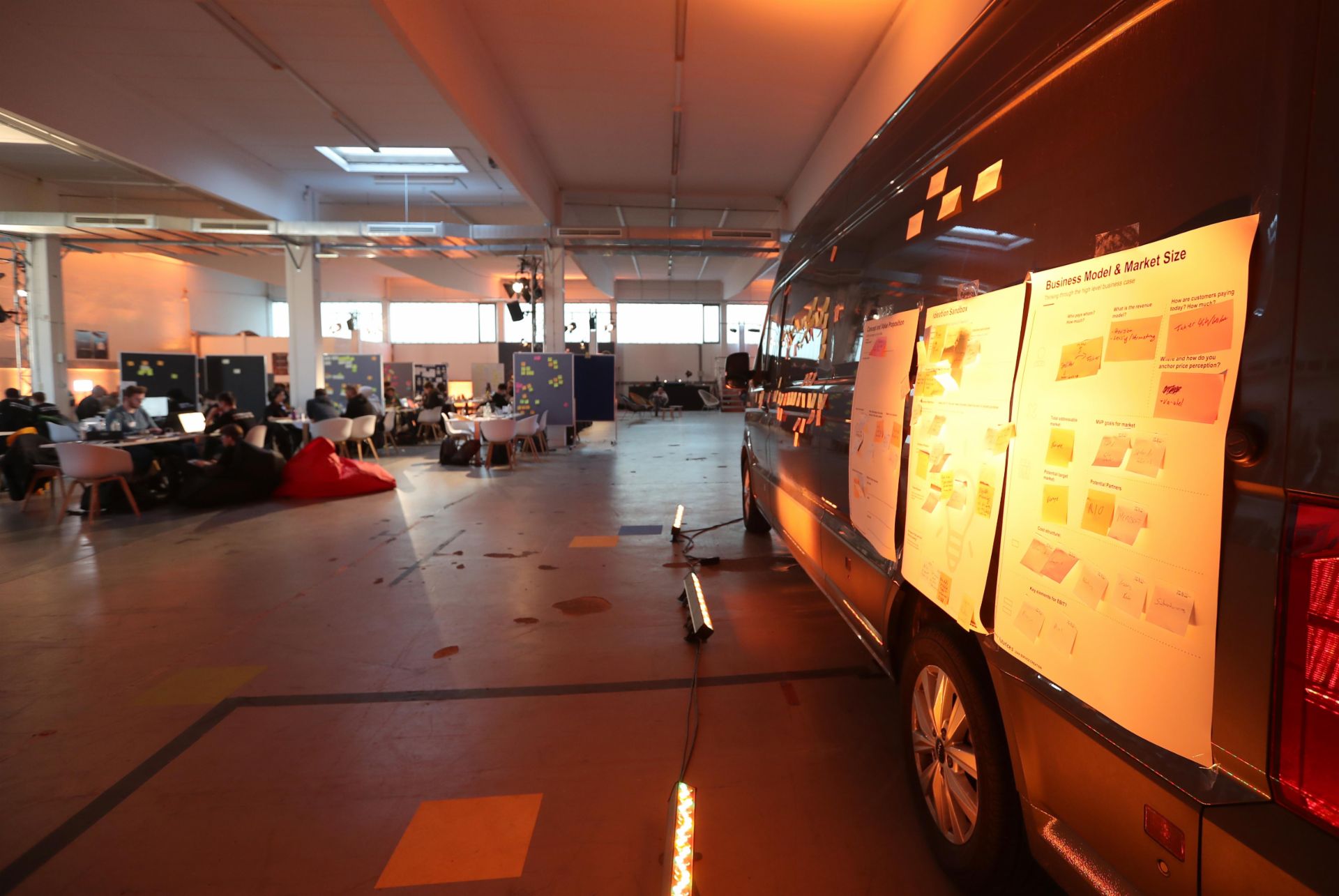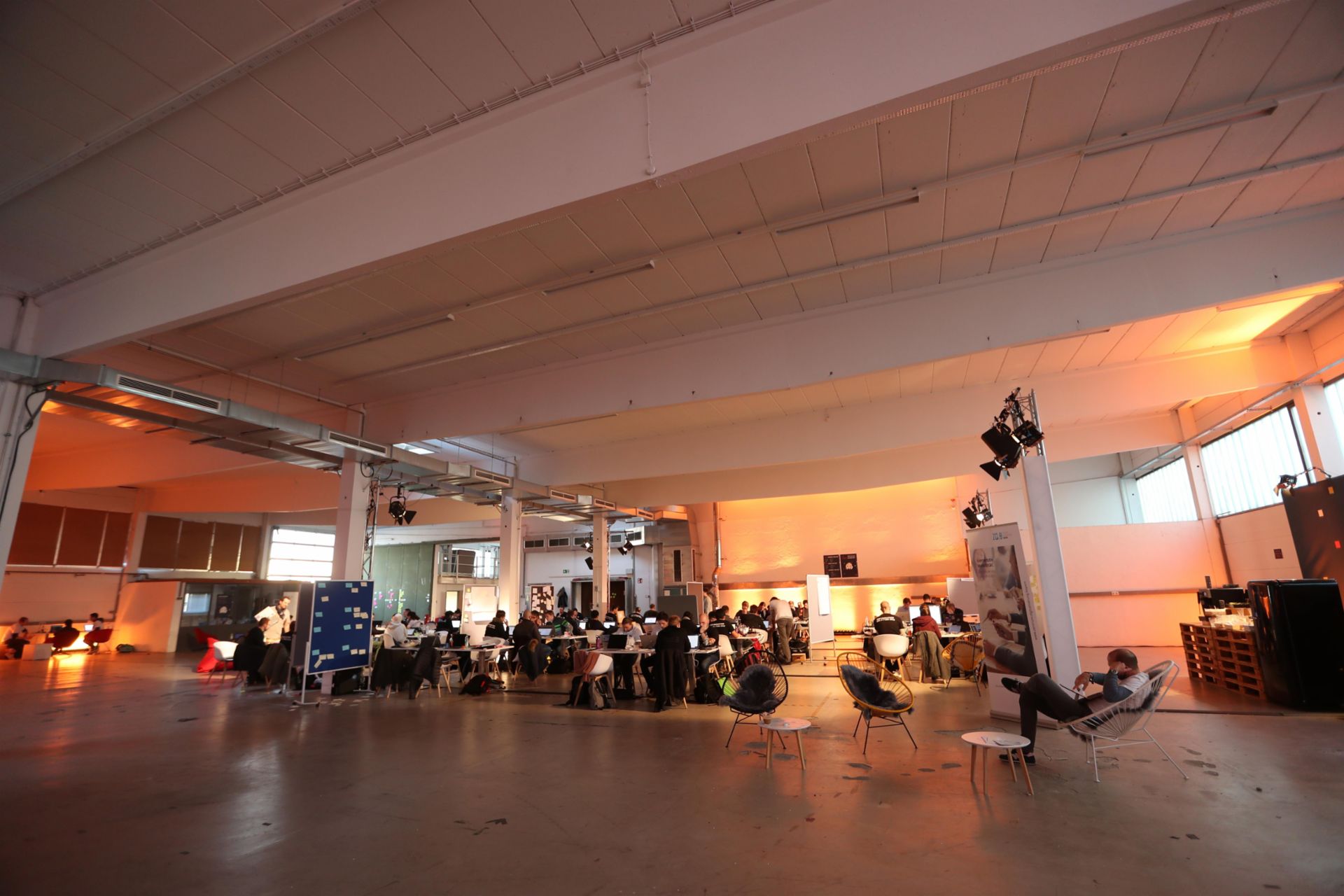
An industrial building in the north of Munich. A layer of cement stains on the bare concrete floor, walls covered in pipes and wires. In the center of the room: foosball tables and an abundance of sofas. A vegan food truck is parked in the corner, its many fridges bursting with Club-Mate and energy drinks. All over, interested people with their laptops open in front of them are dipping in and out of animated discussions.
You’d be forgiven for thinking this was a coworking space—and you wouldn’t be far off. At the start of December, more than 100 people met here, in this startup atmosphere, to take part in a hackathon. This time, the event was organized by MAN, a TRATON brand.
You don’t need to have studied IT to be a hacker
“We want to create ideas”—that’s how Niklaus Waser describes the objective of the event he initiated. Waser has been Head of Digital Transformation & Business Models at MAN since mid-2019. It may be the first hackathon for the company, but not for Waser himself. He knows the scene well: “We wouldn’t have got people to come to a conference hotel,” he says from experience. The people loved the industrial feel of the venue, located just a few kilometers away from the MAN headquarters in Munich. The rest of the time, this space is home to highly secret prototypes of future trucks and buses—you can’t get much more authentic than that.
That sort of atmosphere is the ideal setting for a hackathon. The participants have to feel at ease—only then can ideas flow. With this in mind, the 23 teams spent three days developing suggestions for how MAN, but also the entire transportation and logistics industry, can boost their digital presence. To succeed in this kind of competition, you have to be quick on your feet, a good team player, and love what you do. What you don’t have to be, however, is an IT specialist. Designers, analysts, and economics experts had also registered to take part. They were given three areas to choose from: electric mobility, transportation logistics, and vehicle safety.

Ideas for digital use of trucks and buses
“These days, manufacturers cannot just produce trucks and buses,” explains Michael Kobriger, Board Member responsible for Production and Logistics at MAN Truck & Bus. Instead, customers expect a wide range of services for their business. In addition to the vehicle itself, they also look for digital products they can use every day. Kobriger adds that there is growing demand for manufacturers’ logistics solutions. This is where the RIO digital platform comes in within the TRATON GROUP.
The foundation of digital solutions is data. This is why it also formed the basis for all deliberations during the hackathon. The data in question came from a real fleet, which included ten electric MAN delivery trucks that have been in daily operation in Austria for many months. The hackathon participants were able to use and work with one million anonymous data points covering range, temperature curves, and load parameters. They were then tasked with using these as the basis on which to find a brilliant idea and put it into practice as far as possible. During the time they had to work on this, the teams received competent support from MAN experts and from specialists working for partner companies Futurice, Microsoft, Accenture, and the Bavarian Digitalization Center (Zentrum Digitalisierung Bayern).
Designing applications with the customer in mind—a new approach
There tends to be quite a mix of participants in a hackathon. After all, it’s not just expert knowledge that counts here, but also the ability to adapt to the problems you are faced with. The teams are mostly made up of three to five people, who often meet for the first time at the event itself. It is then important for them to quickly get used to one another, as they can only succeed if they work as a team.
Three teams at the MAN hackathon were also made up of the company’s own employees: MAN graduate and vocational trainees were keen to sign up for the event. The areas of the commercial vehicle manufacturer they work in could not be more different. All are fascinated by the challenge of creating new ideas with the customer in mind. “Even now, digital services in our industry are still mostly developed with the vehicle in mind,” explains Nicklaus Waser. That has to change, and a hackathon is the ideal event for this shift in mindset. He adds that when people with completely different skills and professional backgrounds come together, opportunities arise for an entirely new way of thinking. Some of the teams never even had anything to do with logistics, one of the event’s focal points, until the hackathon itself. This didn’t stop them from finding solutions for the industry problems they were presented with.

A jury assesses the teams
At the end of the three days, six teams were selected to present their ideas in the format of a speed-dating event. Each pitch lasted exactly five minutes, with team members given another four minutes to answer the jury’s questions. The jury was made up of specialists from the participating companies, all of them experts in logistics, transportation, or IT.
In the end, three teams received monetary prizes. There was little doubt as to who the winner was going to be: team Flying Doctors won the hearts of both the jury and the audience. Its members had developed software for managing maintenance times for commercial vehicles that allows upcoming work to be booked automatically in a workshop en route, where possible during the driver’s rest periods.
Although there could only be one winner, there were plenty of other good ideas: Niklaus Waser warned the teams that they can expect phone calls from the MAN headquarters. “We will definitely follow up on one or two suggestions that we saw here today,” the manager noted with delight. He also already announced the next hackathon—scheduled to kick off in 2020.
